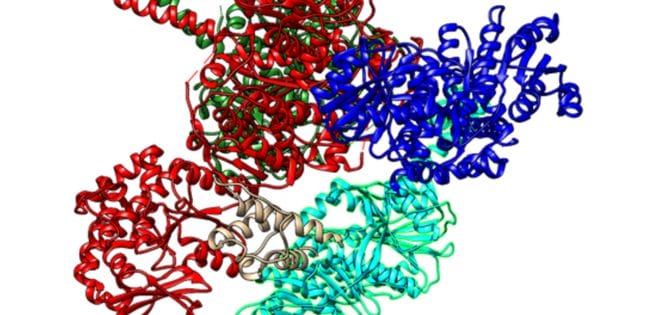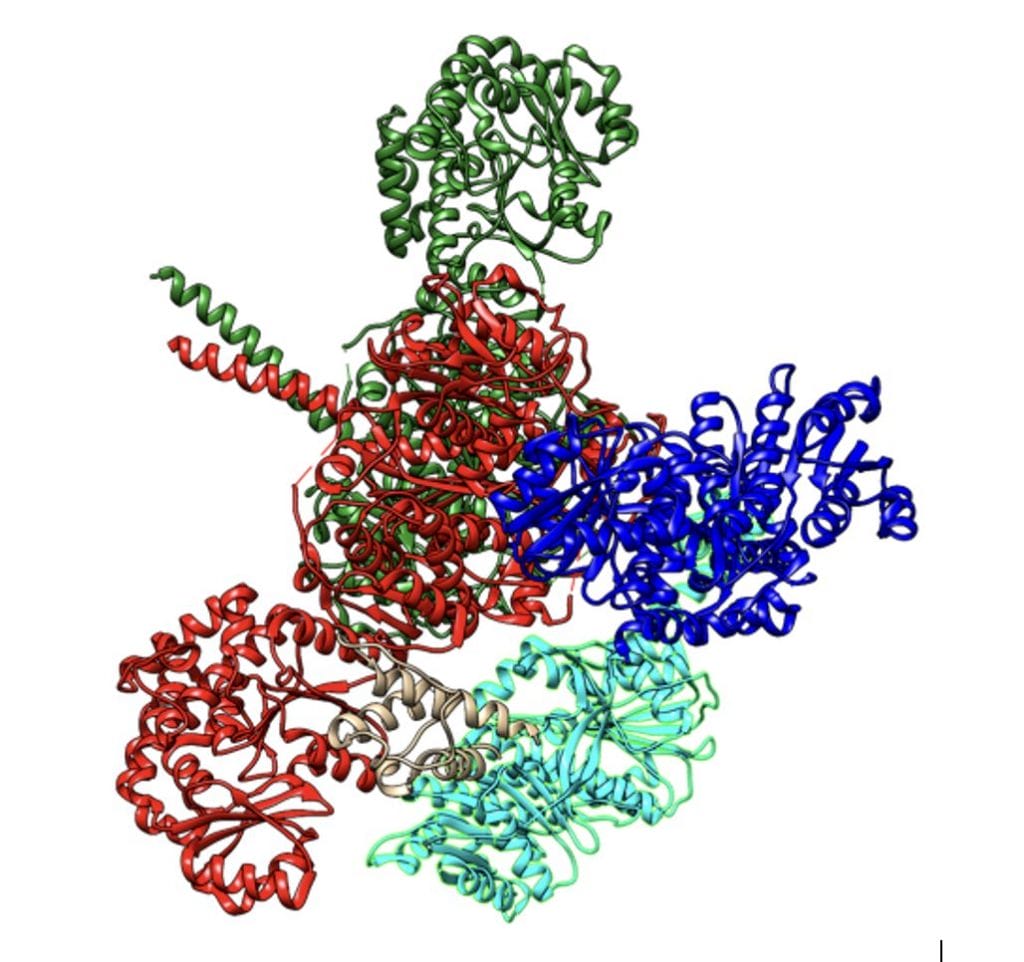Reshaping Nature’s Molecular Machinery for Better Drugs

Imagine being able to rewire the molecular assembly lines that produce many important drugs and other therapeutic compounds found in nature. Scientists have long dreamed of having this capability – to remix natural ingredients in new combinations to generate optimized or entirely novel drug candidates. A groundbreaking new study from ETH Zurich brings us one step closer to making this dream a reality [1].

The researchers focused on a class of giant enzymes called trans-acyltransferase polyketide synthases (trans-AT PKSs), see Figure 1. These molecular factories build many medicinally relevant natural products like antibiotics, anticancer agents, and immunosuppressants by stitching together small building blocks in an assembly line fashion. However, engineering these massive enzymes to produce new therapeutic molecules has remained extremely challenging.
The key breakthrough came when the team analyzed patterns of coevolution in the amino acid sequences that make up trans-AT PKSs from across the bacterial kingdom. This analysis, using a statistical technique called statistical coupling analysis (SCA), revealed a specific amino acid motif (LPTYPFx5W) that acts as a favored recombination point in the evolutionary trajectory of these enzymes.
Armed with this insight into nature’s design rules, the researchers could make targeted modifications at this identified m tif while minimally disrupting the enzyme’s core biochemistry. They demonstrated the remarkable versatility of this approach by generating 22 different chimeric trans-AT PKSs – many of which produced new antibiotic-like molecules not found in nature. Some highlights of their engineered molecular assembly lines include:
- Swapping in new enzymatic modules that install chemical building blocks like chlorines, double bonds, or other functional groups
- Truncating full-length assembly lines to generate simpler antibiotic scaffolds for medicinal chemistry optimization
- Mixing and matching modules from diverse trans-AT PKS families to create intricate molecular blends
- Importantly, many of the engineered enzymes remained catalytically productive – actually generating the designed unnatural molecule, rather than just stalling partway through the assembly process. This high success rate attests to the power of the LPTYPFx5W engineering principle.
So what does this mean for the pharmaceutical industry and drug hunters? Engineering trans-AT PKSs opens up a broad new territory for therapeutic lead discovery and development. The unparalleled chemical space spanned by these natural product assembly lines provides a rich landscape for generating molecular novelty and exploring new regions of biologically relevant chemical space.
Additionally, the ability to rationally truncate and diversify complex natural product scaffolds provides new avenues for medicinal chemistry. These simplified or intricately derivatized molecules could serve as starting points for lead optimization programs aiming to improve drug-like properties like potency, selectivity, pharmacokinetics, or stability. Nature’s molecular machinery, rewired by human ingenuity, becomes a platform for manufacturing therapeutic candidates essentially impossible to access by traditional synthetic chemistry alone.
While challenges remain in increasing the titers and optimizing the performance of these metabolically engineered assembly lines, the innovative study from ETH Zurich has provided a powerful new set of guiding principles and tools. The door is now open for wave after wave of engineered natural product molecules – reshaping our arsenal of therapeutic agents against the diseases that afflict humankind.
Sources:
1. Mabesoone MF, Leopold-Messer S, Minas HA, Chepkirui C, Chawengrum P, Reiter S, Meoded RA, Wolf S, Genz F, Magnus N. Evolution-guided engineering of trans-acyltransferase polyketide synthases. Science. 2024;383(6689):1312-7.
 >
> 

